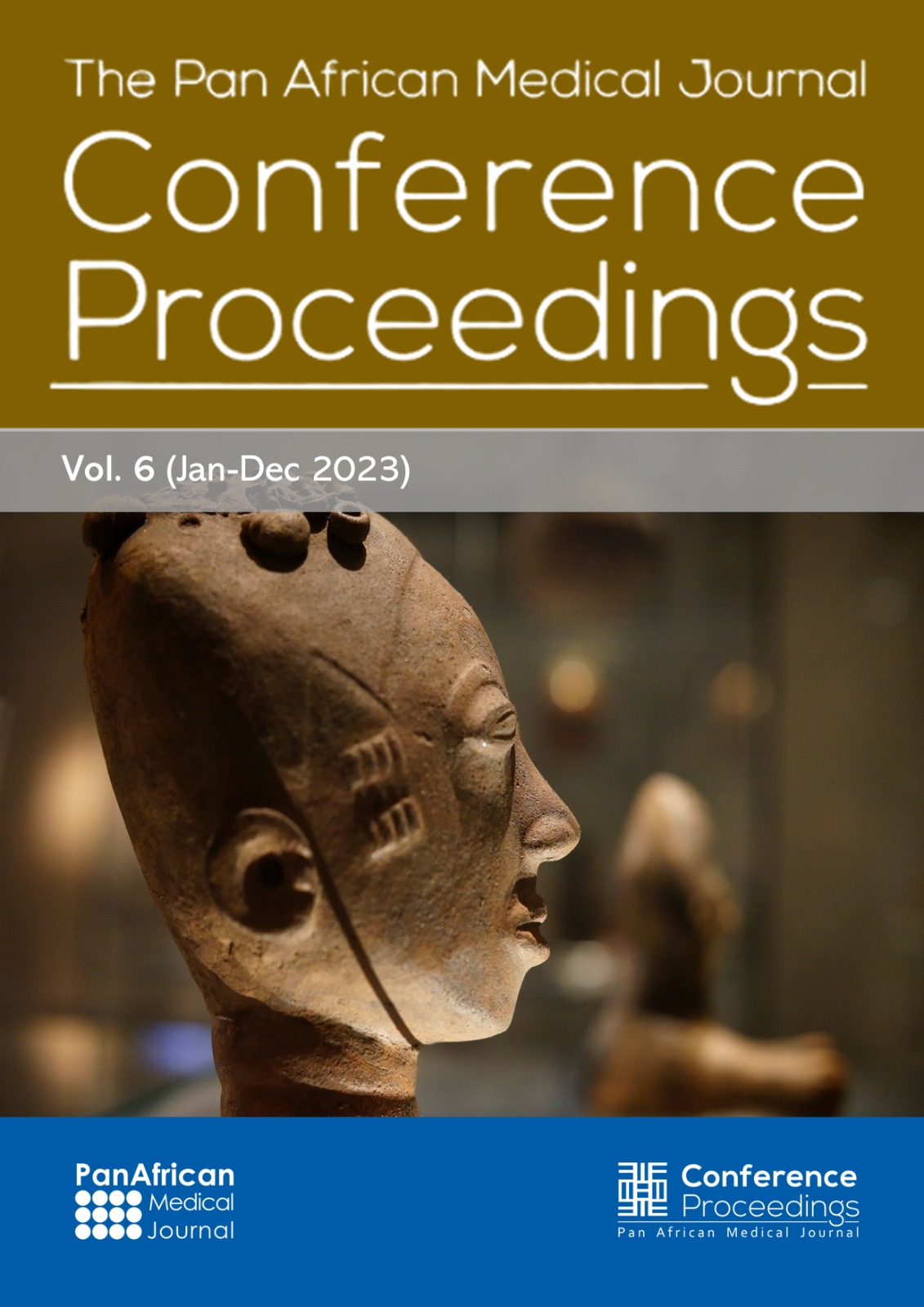Conference abstract
One-health strategy to the control and prevention of rabies in Nigeria: a reflection
Pan African Medical Journal - Conference Proceedings. 2019:10(10).12
Mar 2019.
doi: 10.11604/pamj-cp.2019.10.10.817
Archived on: 12 Mar 2019
Contact the corresponding author
Keywords: One health, rabies, control, prevention, Nigeria
Oral presentation
One-health strategy to the control and prevention of rabies in Nigeria: a reflection
Julius Aiyedun1,&, Oladapo Oludairo1, Rosemary Nwoha2
1Department of Veterinary Public Health and Preventive Medicine, Faculty of Veterinary Medicine, University of Ilorin, Kwara State, Nigeria, 2Department of Veterinary Medicine, Micheal Okpara University of Agriculture, Umudike, Abia State, Nigeria
&Corresponding author
Julius Aiyedun, Department of Veterinary Public Health and Preventive Medicine, Faculty of Veterinary Medicine, University of Ilorin, Ilorin, Kwara State, Nigeria
Introduction: although rabies has been a neglected disease of high public health importance in Africa, quite recently the disease was prioritized for global elimination by 2030. As a result, new efforts and opportunities are emerging to promote strategic one health intervention in the rapidly changing human-animal-environment interface in West Africa, and Nigeria in particular. It is widely agreed upon that our ability to improve and advance rabies control cannot be based on a mindset of sectoral and uni-disciplinary approach, rather than a trans-disciplinary and multi-disciplinary one-health concept. The aim is to scope on actualizing one-health collaboration.
Methods: a scope of traditional communication among health workers, animal health workers, dog owners/breeders and dog bite victims in Nigeria. We used the one health strategy to highlight how integration and collaboration among those stakeholders could result in more rapid prevention and control of rabies hitherto neglected in Nigeria.
Results: one-health collaboration embraces a broad-based strategy for managing rabies through multi-disciplinary communication and collaboration with optimal environmental, human, domestic animal and wild animal health outcome at local, national and global levels. Acceptance and practice of one-health concept can advance and significantly impact on prevention and control of rabies in dogs and humans, contributing to the achievement of Millienium Development Goal of combating major endemic diseases in Nigeria.
Conclusion: one-health strategy offers timely and effective exchange of information among stakeholders. There is need to actualize partnership between government agencies and private sector to implement surveillance and coordinate anti-rabies vaccination efforts.








